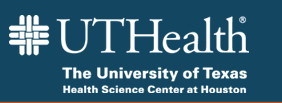BEnefits of Stroke Treatment Delivered Using a Mobile Stroke Unit
| Status: | Recruiting |
|---|---|
| Conditions: | Neurology |
| Therapuetic Areas: | Neurology |
| Healthy: | No |
| Age Range: | 18 - Any |
| Updated: | 9/8/2018 |
| Start Date: | August 2014 |
| End Date: | August 2021 |
| Contact: | James Grotta, MD |
| Email: | james.c.grotta@uth.tmc.edu |
| Phone: | 832-325-7296 |
BEnefits of Stroke Treatment Delivered Using a Mobile Stroke Unit Compared to Standard Management by Emergency Medical Services:The BEST-MSU Study
The primary goal of this project is to carry out a trial comparing pre-hospital diagnosis and
treatment of patients with stroke symptoms using a Mobile Stroke Unit (MSU) with subsequent
transfer to a Comprehensive Stroke Center (CSC) Emergency Department (ED) for further
management, to standard pre-hospital triage and transport by Emergency Medical Services (EMS)
to a CSC ED for evaluation and treatment (Standard Management-SM).
treatment of patients with stroke symptoms using a Mobile Stroke Unit (MSU) with subsequent
transfer to a Comprehensive Stroke Center (CSC) Emergency Department (ED) for further
management, to standard pre-hospital triage and transport by Emergency Medical Services (EMS)
to a CSC ED for evaluation and treatment (Standard Management-SM).
There are many ways that use of a MSU might prove valuable in stroke patients, but we will
focus on acute ischemic stroke (AIS) and treatment with IV tissue plasminogen activator (tPA)
within 4.5 hours of symptom onset since that is the most evidence based effective emergency
treatment for the most prevalent stroke diagnosis. We hypothesize that the MSU pathway will
result in an overall shift towards earlier evaluation and treatment, particularly into the
first hour after symptom onset, leading to substantially better outcome. We also hypothesize
that as a result of improved clinical outcomes resulting from earlier treatment, the costs of
a MSU program will be offset by a reduction in the costs of long term stroke care and
increase in quality adjusted life years, thereby supporting more widespread use of this
technology. To make MSU deployment more practical, we will confirm that a Vascular
Neurologist (VN) on board the MSU can be replaced by a remote VN connected to the MSU by
telemedicine (TM) thereby reducing manpower requirements and costs.
The successful completion of this project will provide data on important outcomes and costs
associated with the use of MSU vs SM in the United States (U.S.) that will help determine the
value of integrating MSUs into the pre-hospital environment in this country. Successfully
addressing our three Specific Aims (time saved/ complications encountered, utility of TM, and
cost effectiveness) will provide critical information that will be needed to determine if and
how a subsequent more definitive study should be conducted. We anticipate that emanating from
this exploratory study would be a larger multicenter trial carried out in both urban and
rural U.S. pre-hospital environments, with treatment orchestrated via TM, and having
sufficient power to determine a difference in long term outcome and costs between patients
managed on the two pathways, following a study design that will be tested in this exploratory
trial. The present study, therefore, is the necessary first step in a process which may
dramatically modify the way that acute stroke patients are managed in the U.S.
focus on acute ischemic stroke (AIS) and treatment with IV tissue plasminogen activator (tPA)
within 4.5 hours of symptom onset since that is the most evidence based effective emergency
treatment for the most prevalent stroke diagnosis. We hypothesize that the MSU pathway will
result in an overall shift towards earlier evaluation and treatment, particularly into the
first hour after symptom onset, leading to substantially better outcome. We also hypothesize
that as a result of improved clinical outcomes resulting from earlier treatment, the costs of
a MSU program will be offset by a reduction in the costs of long term stroke care and
increase in quality adjusted life years, thereby supporting more widespread use of this
technology. To make MSU deployment more practical, we will confirm that a Vascular
Neurologist (VN) on board the MSU can be replaced by a remote VN connected to the MSU by
telemedicine (TM) thereby reducing manpower requirements and costs.
The successful completion of this project will provide data on important outcomes and costs
associated with the use of MSU vs SM in the United States (U.S.) that will help determine the
value of integrating MSUs into the pre-hospital environment in this country. Successfully
addressing our three Specific Aims (time saved/ complications encountered, utility of TM, and
cost effectiveness) will provide critical information that will be needed to determine if and
how a subsequent more definitive study should be conducted. We anticipate that emanating from
this exploratory study would be a larger multicenter trial carried out in both urban and
rural U.S. pre-hospital environments, with treatment orchestrated via TM, and having
sufficient power to determine a difference in long term outcome and costs between patients
managed on the two pathways, following a study design that will be tested in this exploratory
trial. The present study, therefore, is the necessary first step in a process which may
dramatically modify the way that acute stroke patients are managed in the U.S.
Inclusion Criteria:
- Last seen normal within 4hr 30 min of symptom onset
- History and physical/neurological examination consistent with acute stroke
- No tPA exclusions per guidelines, prior to CT scan or baseline labs
- Informed consent obtained from patient (if competent) or legal representative.
Exclusion Criteria:
We found this trial at
1
site
7000 Fannin St
Houston, Texas 77030
Houston, Texas 77030
(713) 500-4472

Principal Investigator: James C Grotta, MD
Phone: 713-500-6116
University of Texas Health Science Center at Houston The University of Texas Health Science Center...
Click here to add this to my saved trials